Report of the 2016 Meeting of the Asian Council of Science Editors

On August 10 and 11, 2016, Clarinda Cerejo, Editor-in-Chief of Editage Insights, and I attended the 2016 meeting of the Asian Council of Science Editors (ACSE) at the Carlton Palace Hotel in Deira, Dubai. The meeting was attended by 180 participants including ACSE members, journal editors, researchers, and publishing professionals. The two-day program included short courses on the first day and learning sessions, including one by Clarinda, on the second.
Both academics and journal editors are under intense pressure to publish and stay ahead in the academic publishing game. This pressure is known to be particularly intense in Asian countries, where researchers and journals struggle to meet international publication standards, increase the discoverability of their research to gain global recognition, or adapt to current publication trends. This was also the general theme of discussions at the ACSE 2016 meeting. The aim was to stimulate discussion and debate on topics relevant to academic publishing in Asia: research impact measurement and bibliometrics; predatory publishing and publication ethics; peer review trends; open access publishing; and the need for bridging the gap between authors and journals.
On the first day, Prof. Gazi Mahabubul Alam, Vice President of the ACSE, presented the keynote address and urged the publishing community in Asia to openly discuss and find solutions to its problems even though this implied dealing with conflicting views or interests. He also explained how this year’s ACSE meeting aimed to provide a platform for such an exchange of ideas. He then invited Philip Purnell, Director of Research & Publishing Services, at Knowledge E (a provider of knowledge and consultancy services to publishing professionals in the Middle East), to conduct a short course on bibliometrics. Philip’s session covered the basics of bibliometrics for journal editors, including how the concept evolved and how other measures of research impact, such as citation metrics, work. He emphasized that in Asia, the publish- or-perish culture has led to an impact-factor chase and a poor understanding of other indicators of research impact, i.e., altmetrics. Since the impact factor is a hot topic in Asia, this session witnessed heavy participation with journal editors asking several questions and sharing their experiences and challenges.
In the second next session, Pippa Smart, an experienced independent publishing consultant, advised journal editors about improving their journal quality. She encouraged them to (1) publish good/high-quality content, (2) improve the visibility of their publication, and (3) increase the impact of their journal. She also mentioned that, often, journal editors fail to understand authors’ needs and do not to adhere to established reporting guidelines, e.g., the EASE Toolkit for Authors and COPE Principles of Transparency in Scholarly Publishing. Given her experience with helping journals, Pippa received a lot of questions about how their Asian journals could become more competitive and international. The day ended with interesting discussions on topics such as authorship and journal processes.
Day two had a long and interesting line-up of sessions and speakers. The first learning session of the day was conducted by Lars Bjørnshauge, Managing Director and Founder of the Directory of Open Access Journals (DOAJ). Speaking of the advancements in open access publishing, Lars emphasized that open access is inevitable and publishers must adapt to the changing scenario. According to Lars, real open access results in greater discoverability of research and extensive re-use rights. He also spoke about the difference between academic freedom and academic responsibility and discussed the implications of open access publishing in Asia and the Middle East. Since Editage Insights follows open access trends closely, Clarinda and I found this session quite interesting and were able to relate to some of Lars’ points.
UNESCO Laureate Prof. Zabta Khan Shinwari led the next session and discussed the topic he is passionate about – research and publication ethics issues faced by researchers in Asia and the Middle East. Prof. Shinwari insisted that it is possible for publishers to strike a balance between ethics and business. He also highlighted the urgent need to reform research, teaching, academic evaluation, and scientific communication systems in Asia and the Middle East.
Next, Philip Purnell, Rachael Lammey (Product Manager at CrosssRef), and Matthew Buys (Regional Director, Africa, Middle East, and Canada, at ORCID) led sessions on Knowledge E, CrossRef, and ORCID, respectively. Philip introduced Knowledge E as the upcoming open access publishing platform in the Middle East; Rachael explained how CrossRef supports publishers and helps solve their problems; and Matthew discussed the importance of ORCID’s persistent digital identifiers.
The session that followed focused on Editage Insights. Clarinda introduced Editage Insights as a platform that bridges the gap between authors and journals by sharing useful resources and best publication practices. She described the range of resources available on the platform: tips on manuscript preparation and submission, a Q&A forum for researchers, resources for ethical publication, and interviews with industry experts who share their views and advice on academic publishing. Clarinda also mentioned how Editage Insights partners with journals, publishers, and institutions to help them reach out to their researchers and authors. Several journal editors and authors were keenly interested in collaborating with, contributing to, and following Editage Insights.
The concluding session on peer review trends was conducted by Pippa Smart. Pippa brought journal editors up to speed with top global discussions about peer review. She mentioned how post-publication peer review is catching up and reviewer recognition is being discussed widely. She then shared some tips on how journal editors can incentivize reviewers.
In the panel discussion that followed, participants discussed the main issues in scholarly communication in Asia and the Middle East:
- Local journals are in a dilemma – despite publishing high-quality research, they struggle to compete with international journals either because they do not have an impact factor or because the research they publish is not easily discoverable globally.
- Publication ethics, open access, tools for researchers (e.g., ORCID) and publishers (e.g., CrossRef), and the need for bridging the gap between the East and the West and between journals and authors are emerging as main discussion points in these regions.
The 2016 ACSE meeting was truly productive as the attendees were highly participative and interactive during and between all sessions. The meeting was a great way for us to meet authors and editors and discuss some of their challenges across the table.
Here are some photos taken by the ACSE during the event.
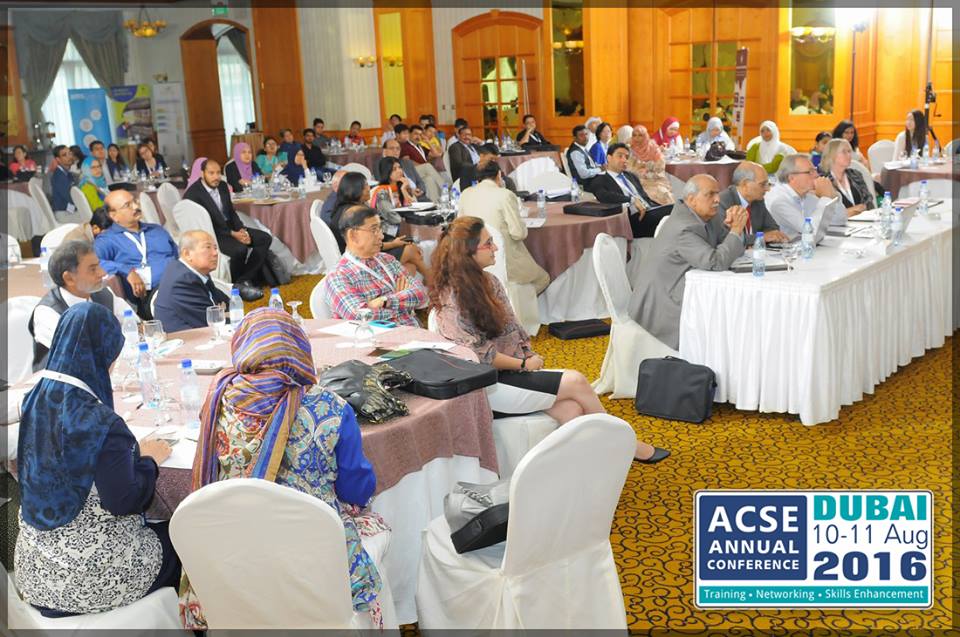
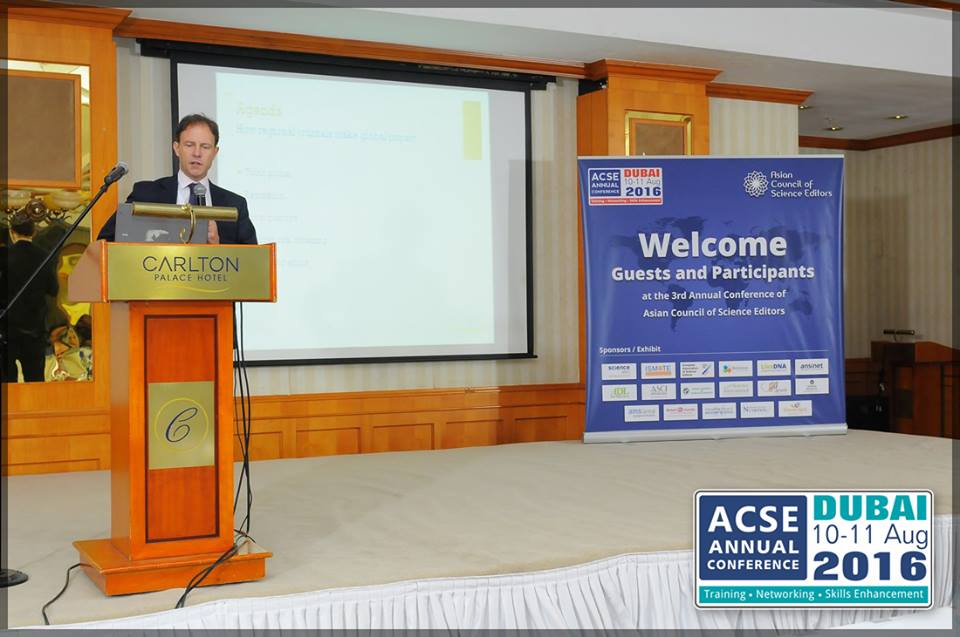
Left: Participants paying close attention to the speakers at ACSE 2016
Right: Philip Purnell, talking about Knowledge E
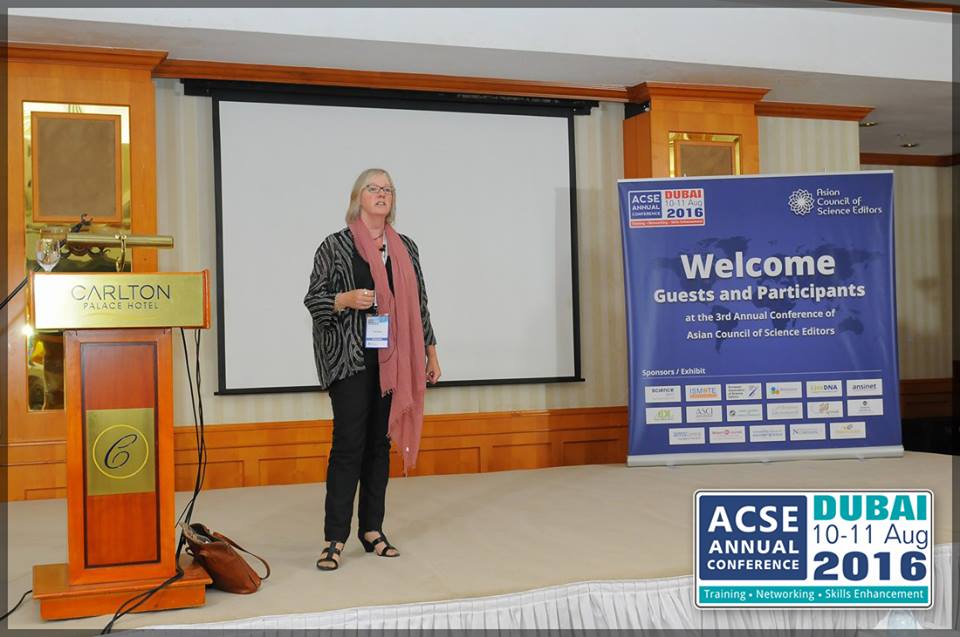
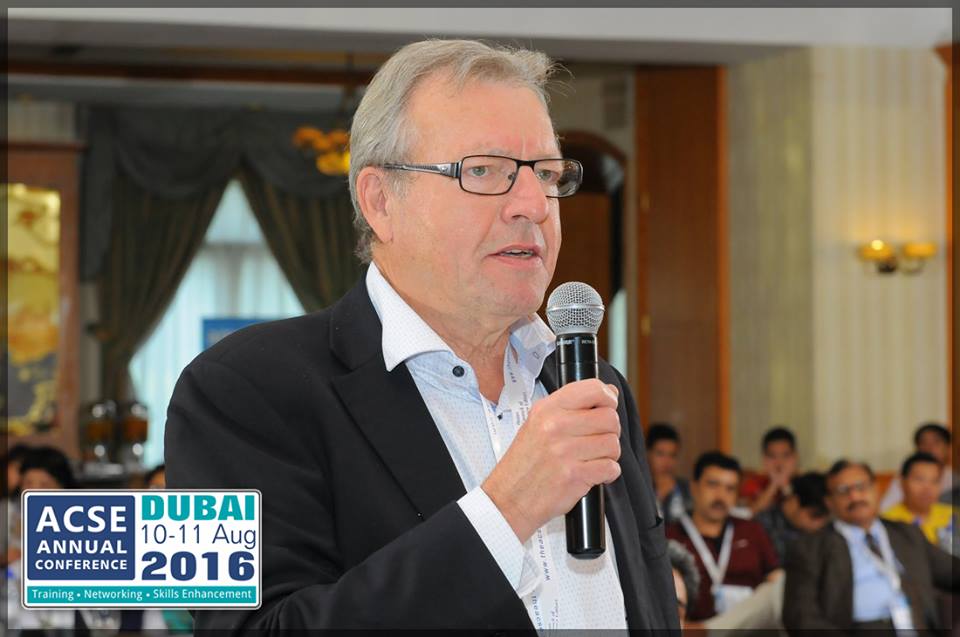
Left: Pippa Smart sharing some useful advice for journal editors
Right: Lars Bjørnshauge discussing the implications of open access publishing
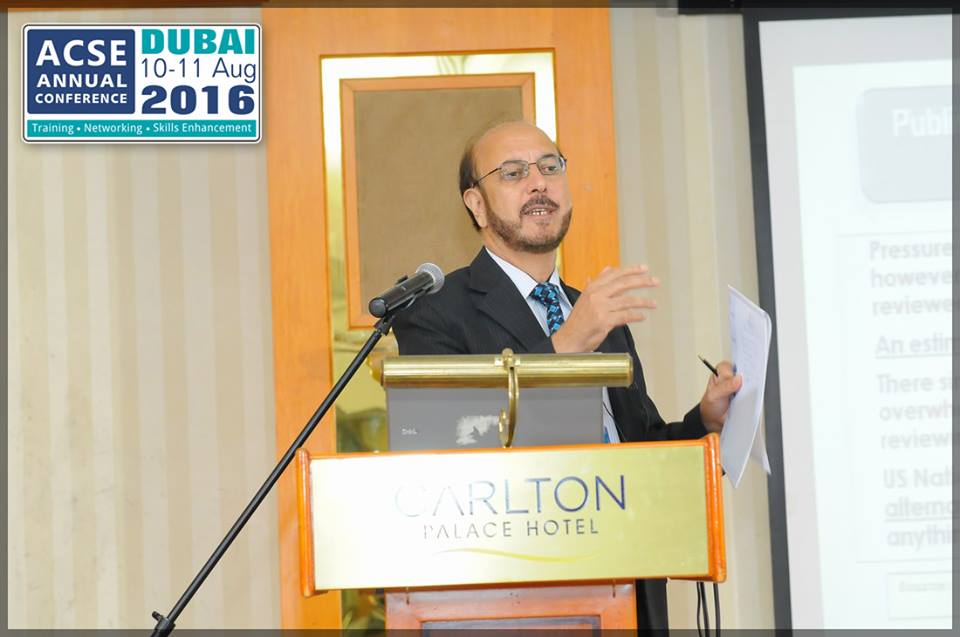
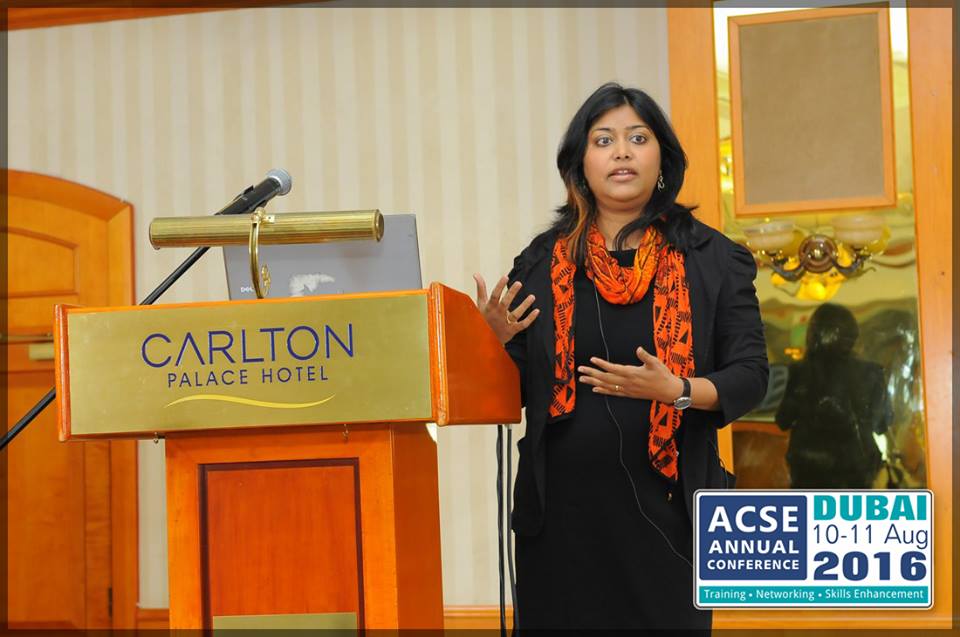
Left: Prof Zabta Khan Shinwari talking about academic misconduct
Right: Clarinda Cerejo introducing Editage Insights
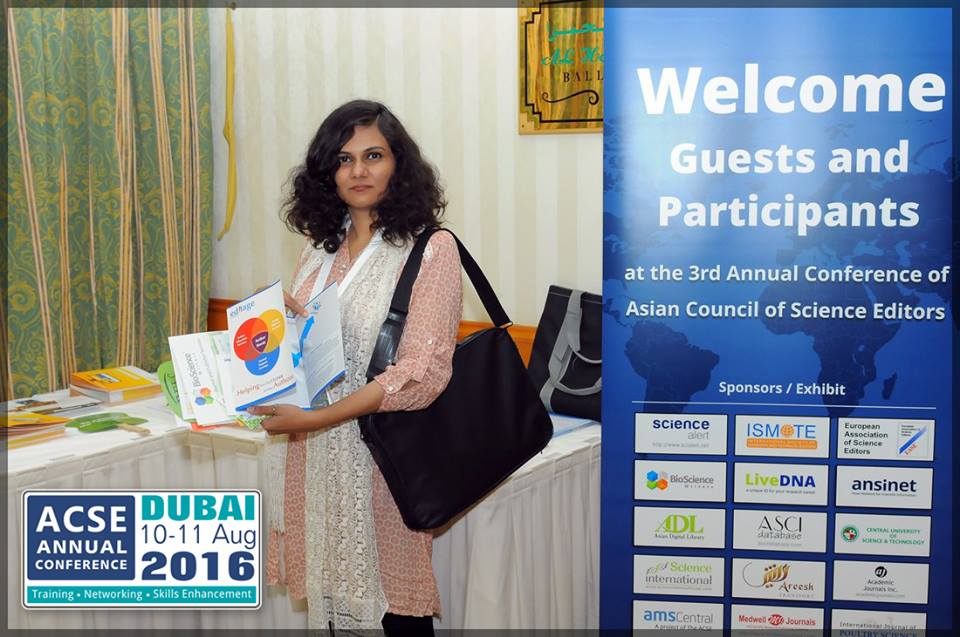
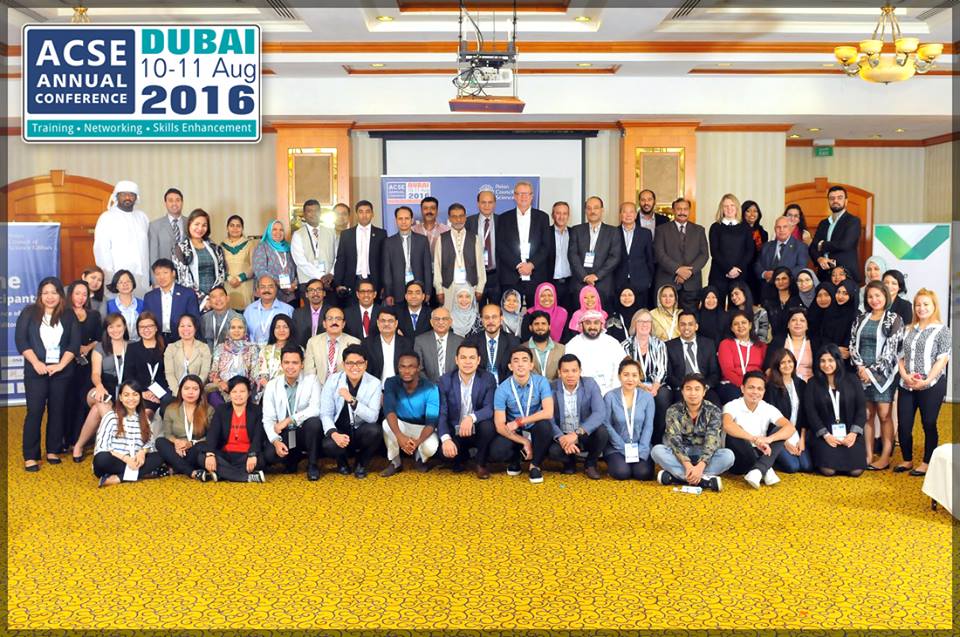
Left: A Participant leafing through Editage resources at ACSE 2016
Published on: Sep 01, 2016
Comments
You're looking to give wings to your academic career and publication journey. We like that!
Why don't we give you complete access! Create a free account and get unlimited access to all resources & a vibrant researcher community.














